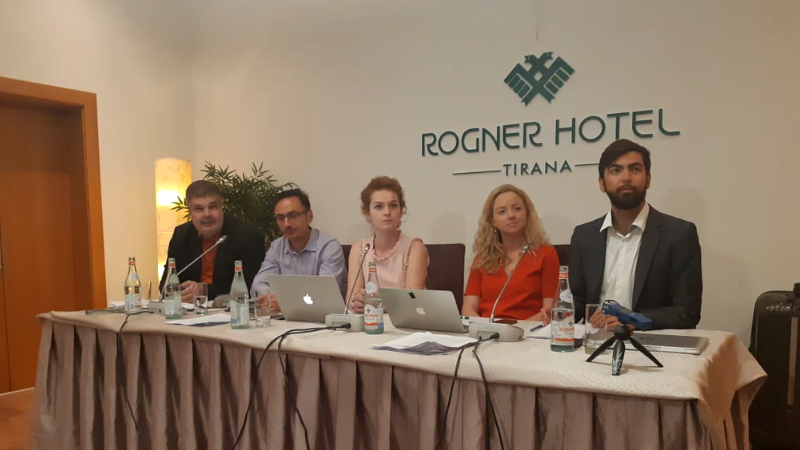Smear campaigns against journalists coordinated by politicians are on the rise across Europe, according to a delegation of international press freedom organisations on a joint mission in Albania where they raised concerns similar to those voiced during their visit to Malta.
Representatives from the Committee to Protect Journalists, the European Centre for Press and Media Freedom, Article 19, the European Federation of Journalists, the International Press Institute, Reporters Without Borders, and the South East European Media Organisation visited the country to gather information about the challenges to freedom of expression and press freedom.
The delegation observed that like in many other European countries, press freedom is “deteriorating”, resulting in a climate where there is an increased risk of violence and threats towards media workers.
This is in line with Reporters Without Borders 2019 World Press Freedom Index which concluded that press freedom is deteriorating in multiple countries and regions including in Europe, leading the organisation to state that Europe is no longer a sanctuary for journalists.
“The murders of three journalists in Malta, Slovakia and Bulgaria in the space of a few months has made the world realise that Europe is no longer a sanctuary for journalists,” it said.
In Albania, the press freedom organisations noted a climate where smear campaigns, intimidation, harassment and threats were regularly used by politicians to silence critical or independent journalists, particularly those covering instances of corruption or organised crime. The delegation also noted that journalists rarely reported these injustices against them; if they did, there was no justice.
The delegation noted how the failure of senior government officials to call press conferences, as well as repeatedly failing to meet freedom of information obligations, resulted in a situation where they were failing to meet the terms of the European Convention on Human Rights.
“Albanian public administration restricts access to independent journalists and utilises its own communications formats to bypass critical media and control the narrative.” The Prime Minister, Edi Rama denied this and said that he had never stopped any journalist from covering election campaigns and he was open to questions from everyone.
The parallels with Malta are impossible to ignore. Both the Prime Minister and other government officials were criticised for using disparaging language and attempting to discredit critical journalists. This, the delegation said, resulted in the same language being used by members of the public when harassing journalists and other media workers online.
“We are concerned that authorities fail to fully investigate the threats and attacks against journalists, thus contributing to an atmosphere of impunity which might embolden perpetrators to commit similar attacks and intimidate journalists into silence,” the organisations said.
The organisations raised similar issues in Malta during their visit in October 2018, during which they were critical of the impunity surrounding the assassination of journalist Daphne Caruana Galizia.
Failure to apprehend the masterminds behind the attack, and the “glacial pace” of the proceedings against the three men accused of planting the car bomb could lead to a risk of similar attacks as perpetrators have no fear of retribution, the organisations had concluded.
They noted that Malta, as a “democracy” and a Council of Europe Member State was “not living up to its obligations to guarantee and safeguard freedom of expression as required by the European Convention on Human Rights.”
They also drew attention to the problem of online harassment and trolling, as well as the coordinated attacks on journalists and critics of the government.
Alice Taylor is reporting from Tirana, Albania.












